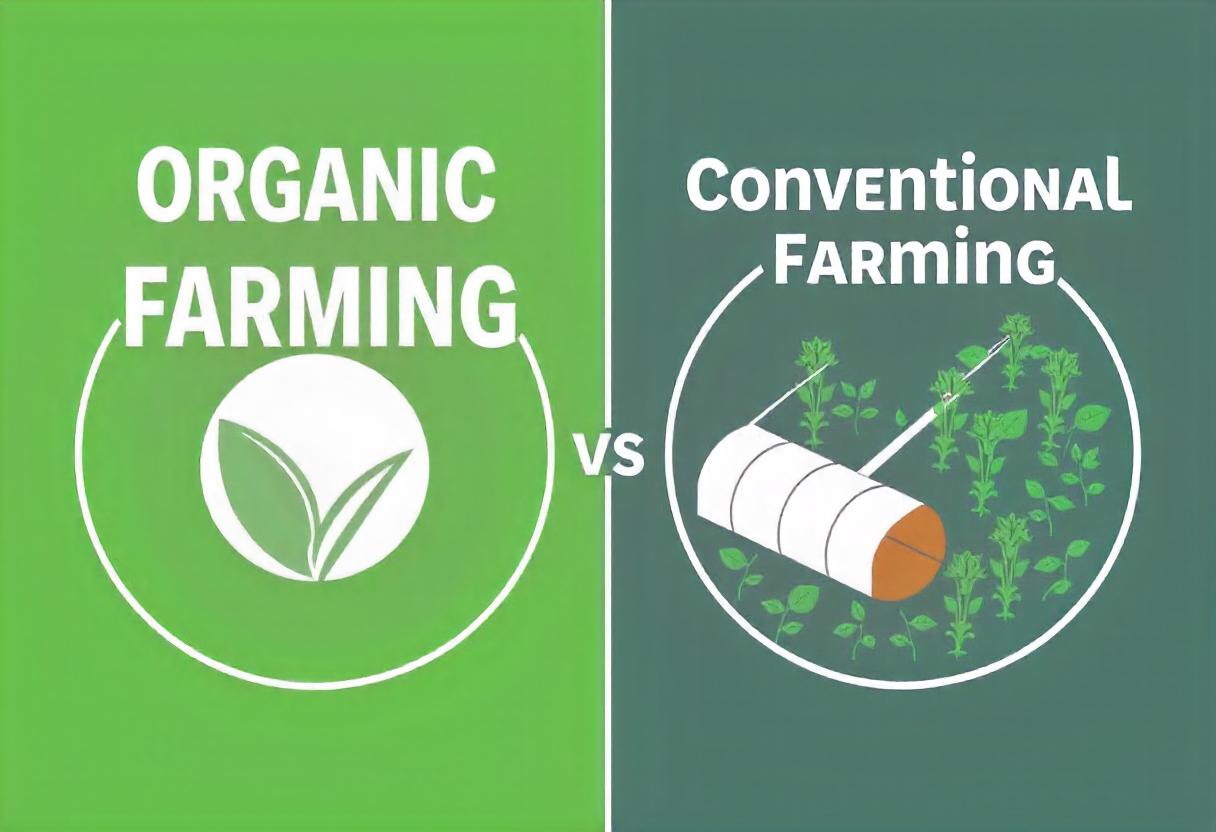
Organic and conventional farming are two primary methods of agriculture that differ in terms of their approach to farming techniques, environmental impact, and sustainability. Understanding their differences can help consumers and farmers make informed choices.
Farming Techniques
Organic farming relies on natural methods for pest control, soil fertility, and crop production. It avoids synthetic chemicals like pesticides, herbicides, and artificial fertilizers. Instead, organic farmers use techniques such as crop rotation, composting, and biological pest control to maintain soil health and manage pests.
Conventional farming, on the other hand, uses synthetic chemicals to increase crop yields and control pests and diseases. Fertilizers and pesticides are applied to crops to boost growth and protect them from harmful organisms. This approach often leads to faster production but can have environmental repercussions.
Environmental Impact
Organic farming is generally considered more environmentally friendly. Since it avoids synthetic chemicals, it reduces soil and water contamination. Organic methods also promote biodiversity by creating a more natural habitat for wildlife and insects. Additionally, organic farms tend to focus on soil health, often using techniques that help preserve soil fertility in the long term.
Conventional farming, due to its reliance on chemicals, can lead to water pollution, soil degradation, and loss of biodiversity. Pesticide and fertilizer runoff from conventional farms can contaminate nearby water bodies, affecting aquatic life. Furthermore, repeated use of the same chemicals can lead to pesticide resistance in pests, requiring even more intense chemical use.
Productivity and Yield
Conventional farming typically produces higher yields than organic farming because it uses artificial fertilizers and pest control methods to maximize efficiency. This makes conventional farming more attractive for large-scale production, where the focus is on quantity and speed.
Organic farming, though typically producing lower yields, emphasizes quality over quantity. Organic crops tend to be grown more slowly and may require more labor and attention, but the end products are often seen as healthier and more environmentally sustainable.
Cost to Farmers and Consumers
Organic farming can be more expensive for both farmers and consumers. Since organic farmers do not use synthetic chemicals, they often have to invest more in labor and alternative methods for pest control and soil management. As a result, organic products are typically more expensive in the market.
Conventional farming, due to its reliance on chemical inputs and large-scale operations, often results in lower prices for consumers. However, the hidden costs of environmental damage and long-term soil degradation are not always reflected in the price of conventionally grown products.
Health and Nutrition
Many proponents of organic farming argue that organic produce is healthier because it is free from synthetic pesticides and fertilizers. Some studies suggest that organic foods contain higher levels of certain nutrients and antioxidants compared to conventionally grown foods. Additionally, organic farming prohibits the use of genetically modified organisms (GMOs), which appeals to consumers concerned about genetic modification.
Conventional farming allows the use of GMOs and synthetic chemicals, which can leave residues on food. However, conventional farming practices are regulated to ensure that pesticide levels are within safe limits for human consumption.